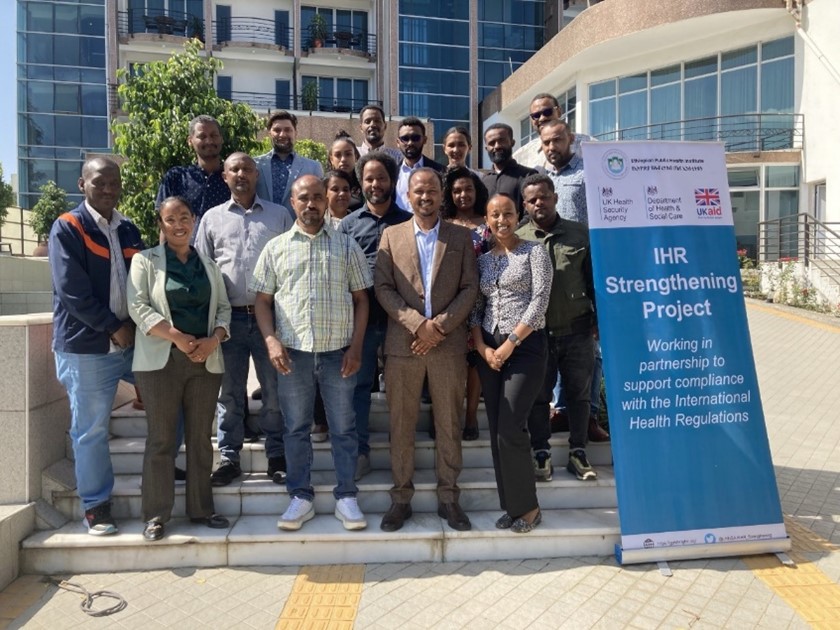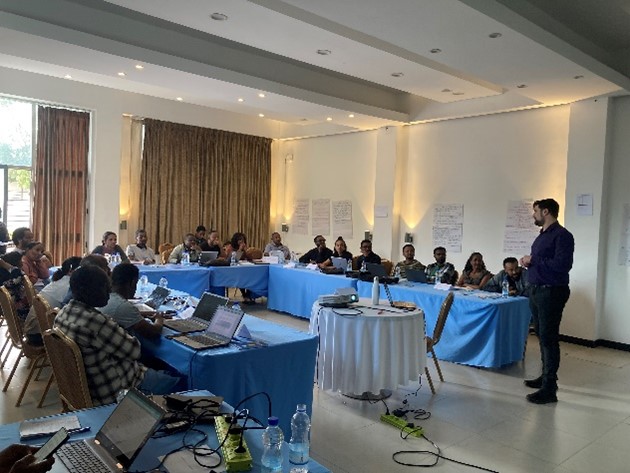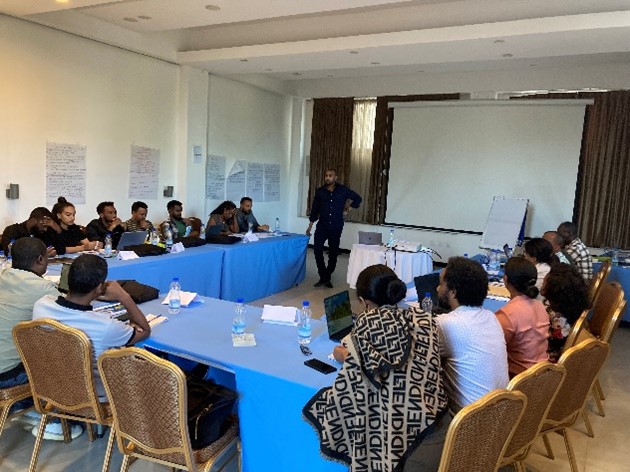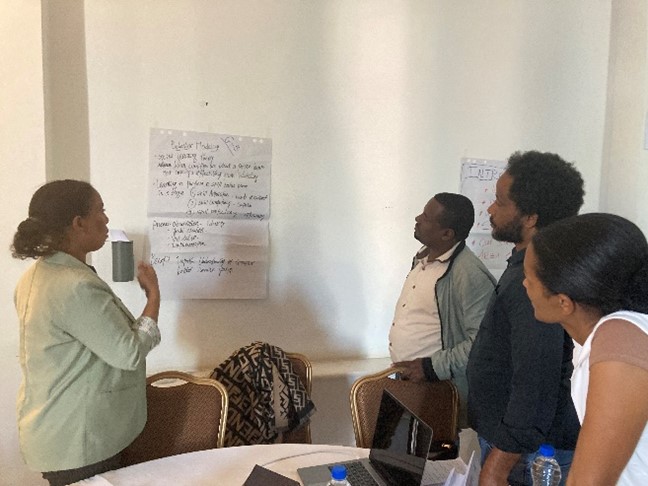
The Ethiopian Public Health Institute (EPHI) is at the forefront of enhancing public health capacity in Ethiopia through its National Training Centre (NTC). The NTC is tasked with coordinating and delivering high-quality competency-based training to strengthen skills of the public health workforce, particularly in laboratory services, Public Health Emergency Management (PHEM), and public health research.
The UK Health Security Agency’s (UKHSA) International Health Regulations Strengthening Project (IHR-SP) has been collaborating with EPHI to support workforce development initiatives. Equipping subject matter experts with advanced facilitation skills, enables them to cascade their knowledge to others to effectively contribute to building a resilient and skilled public health workforce.

Image above: Training Facilitation Skills participants
Training overview
UKHSA IHR-SP collaborated with EPHI to facilitate a training programme on training facilitation skills for 20 public health and laboratory professionals from various directorates within EPHI. The training, held in Bishoftu from 2 – 6 December, 2024, aimed to equip participants with essential facilitation skills to improve the delivery of competency-based training across Ethiopia’s public health sector. Participants were drawn from the National Training Centre, Public Health Emergency Preparedness, Public Health Emergency Response and Recovery, Laboratory Capacity Building, and Infectious Disease Research Directorates.
Facilitators included two EPHI trainers; Mesfin Kefa and Dr Atkure Defar (pictured below right leading a session), and technical advisors from IHR-SP; Habtamu Adebo and Paul Furtado (pictured leading a session below left).


The training curriculum included:

- Approach to training facilitation
- Planning for training
- Effective facilitation skills
- Using competency-based assessment Instruments
- Managing trainings
To ensure an interactive and practical learning experience, a variety of teaching methods were employed, such as group exercises, think-pair-share, gallery walks (pictured right), case studies and teach-back sessions.
Training outcomes
The effectiveness of the training was assessed through pre- and post-training evaluations to look at the participants’ level of knowledge and skills in training facilitation. Additional assessments, including checklist-based evaluations during teach-back sessions, revealed improvement in participants' skills.
Anonymous end-of-course feedback highlighted the following:
- All 20 participants agreed or strongly agreed that the training objectives were achieved
- Participants expressed high satisfaction, with many stating their expectations were exceeded
- All participants committed to applying the newly acquired skills in their professional roles.
One participant shared: "Because I am working at national level (EPHI), most of my routine work is delivering training for the regional health care workers and preparing different training materials. During these activities I will strongly apply the effective facilitation skills which I got from this training."
Finally, all 20 participants successfully completed the programme, scoring above 75% on the summative assessment. They were awarded electronic certificates of competency in training facilitation skills by EPHI’s National Training Centre.
Testimonials
Muhammed Ahmed, Director of EPHI’s National Training Centre, emphasised the significance of this initiative, stating: "Delivering high-quality public health trainings through skilled facilitators is vital for building the capacity of Ethiopia’s public health workforce. The collaboration with UKHSA’s IHR-SP has been instrumental in enhancing our ability to achieve this goal."
Paul Furtado, EPRR Manager for UKHSA’s IHR-SP, highlighted the broader impact of this facilitation skills training: "Empowering trainers with facilitation skills creates a multiplier effect, strengthening the public health workforce and improving health outcomes in Ethiopia. We are proud to support EPHI in this critical endeavour."
As part of ongoing efforts to build effective and impactful delivery of trainings, UKHSA’s IHR-SP will continue supporting EPHI in assessing changes associated with this training. UKHSA’s IHR-SP remains committed to partnering with EPHI to strengthen public health workforce development initiatives.